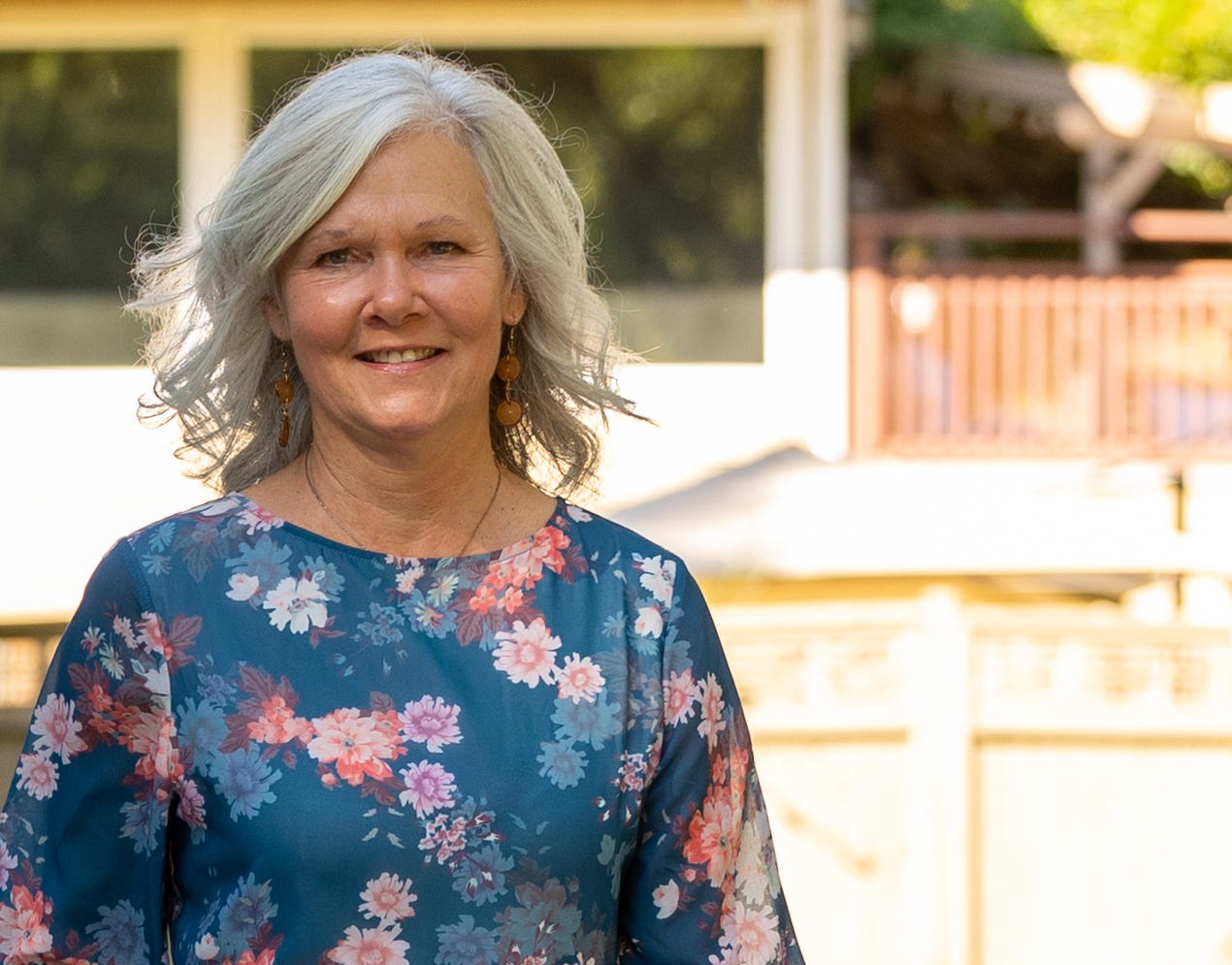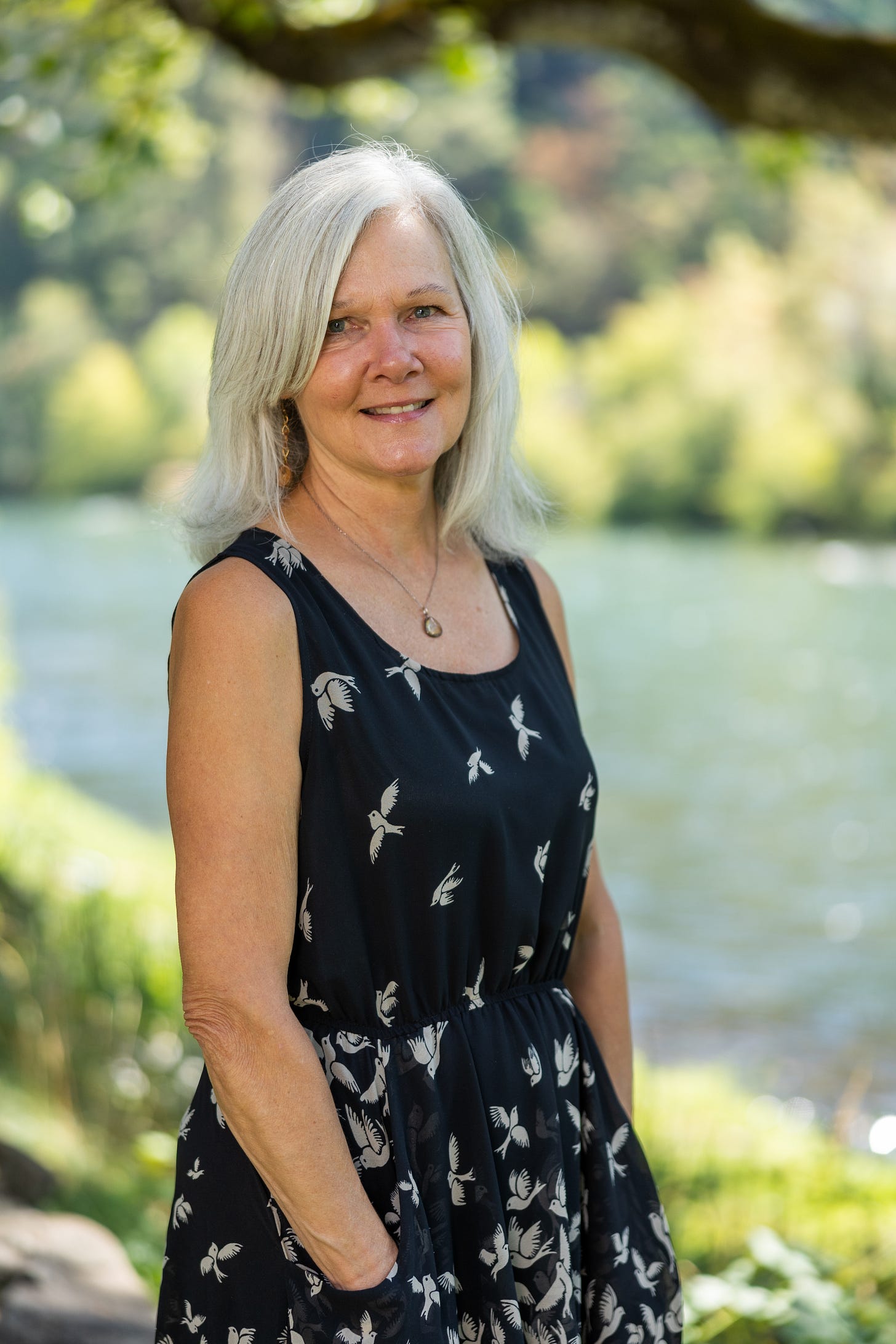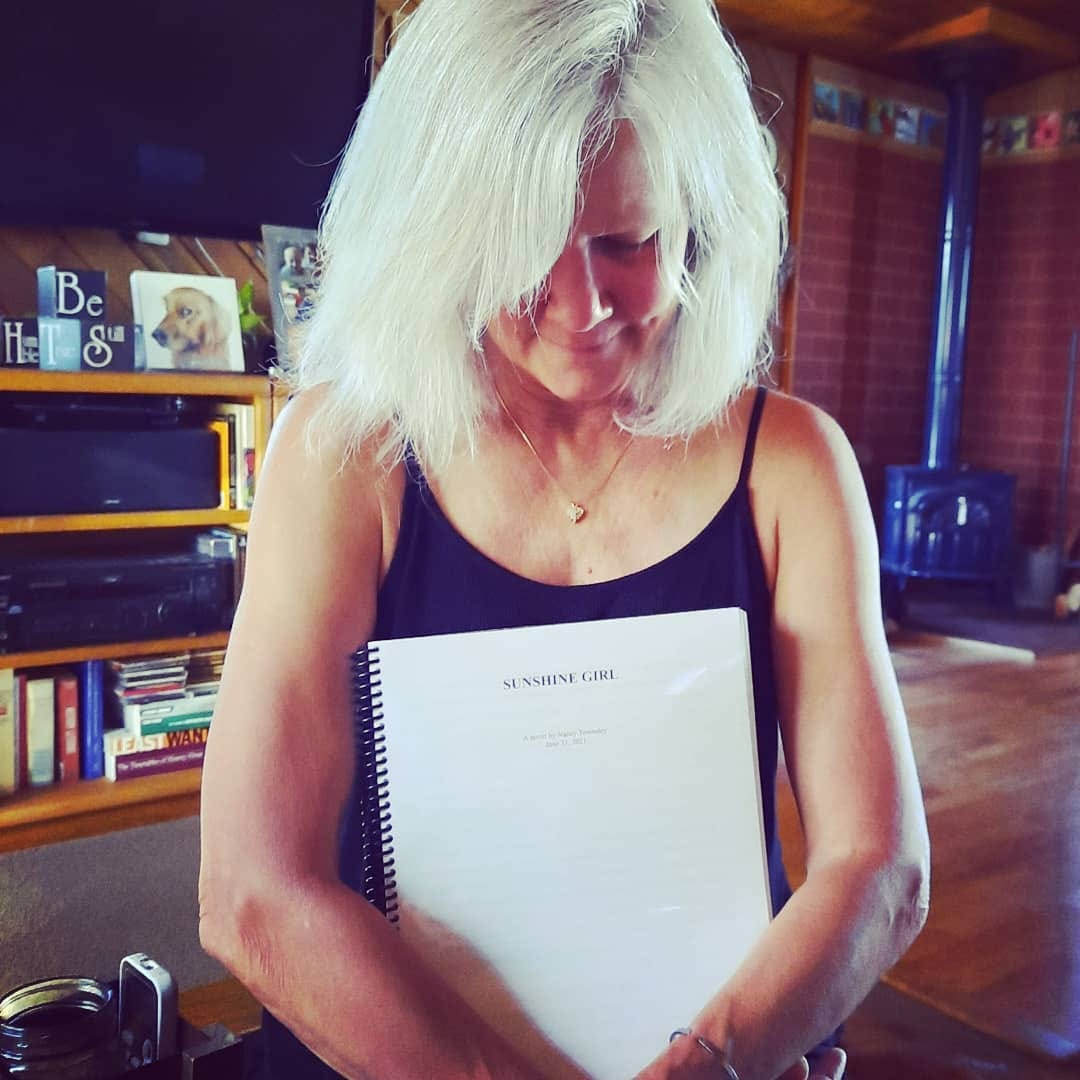Ask the Writer: Nancy Townsley
an interview about her forthcoming novel SUNSHINE GIRL
Jen Knox (JK): Nancy, we had the honor of publishing "Leaving Tulum," an excerpt from your forthcoming novel, Sunshine Girl. You recently signed a deal to publish this manuscript with Heliotrope Books. Congratulations! Do you mind sharing with us a little about the writing of this manuscript and how you came to where you are now?
Nancy Townsley (NT): Thanks, Jen, to you and Unleash Creatives for the opportunity to share about Sunshine Girl! This book has existed, in one form or another, in my mind and heart for the better part of two decades. I retired from newspaper work in 2017—at the time, I was managing editor of two community newspapers in western Oregon—and started writing the novel in 2018, when I was part of an all-women writing group meeting in the basement of a friend’s house in Southwest Portland. After Covid descended and the group dissolved, I kept at it in the early mornings, toiling away inside my floating home on the Multnomah Channel. I finished a first draft in 2021. After three developmental edits and input from five beta readers, I began submitting the manuscript to small indie publishers in fall 2022. Naomi Rosenblatt understood what I was trying to do with the novel (yay!), and her company, Heliotrope Books of New York City, accepted it for publication last summer. The title is forthcoming in April 2025. I’m so excited!
JK: So let’s dive deeper into the manuscript itself. You were a journalist, which is also the premise for your book. Can you speak a little about why you felt called to write this manuscript and also how you leveraged your life experiences in order to create this narrative?
NT: As a newspaper reporter, one of the things I always appreciated was how no two days were ever alike. I got to experience such a wide range of human striving, accomplishment, missteps, and failures; people at their highest and lowest ebbs. And I had the privilege of writing about it all! For some time, I’d wanted to try my hand at fiction after a life spent in a world of just-the-facts. I had this kernel of an idea to write about the evolution of community newspapers over the length of my career, which spanned about 35 years. That idea turned into a family saga complete with divorce, disease, secrets, subterfuge—and leprechauns! At its core, though, Sunshine Girl is about what happened to American media between Nixon and Biden. Spoiler alert: It hasn’t all been good.
JK: I’m always curious about writers’ inspiration. Can you tell me what/who inspires you as a writer?
NT: So many wonderful books and authors! Early on, Studs Terkel, George Orwell, Jack Kerouac, Ken Kesey. I guess I mostly read male authors in high school and college! Then: Nora Ephron and Erica Jong. Katharine Graham’s Personal History. And oh my, Grace Paley! A feminist and pacifist. Her memoir Just As I Thought knocked my socks off when I finally had time to read it after my children were grown. She raised her kids in Greenwich Village, where Heliotrope Books is located. Count this lifelong West Coaster astounded at the serendipity! More recently, Portland author Rene Denfeld’s The Enchanted blew my hair back. I adored Laura Stanfill’s Singing Lessons for the Stylish Canary for its whimsical, lyrical, fable-like qualities. And Liz Scott’s hilarious, unflinching memoir, This Never Happened, made me laugh and cry in equal measures, two qualities of a fine book.
JK: How did you find your first publication?
NT: The Riveter magazine was brand new when its editors published my longform piece, “Shades Of A Mother,” in 2013, the year my mom died from complications of Alzheimer’s disease. It was a tribute to her life and times, but also an open-eyed look at the ravages of the disease and her descent into dementia, which robbed her of her ability to speak, an ironic twist for a woman whose hallmark was gregariousness and her ability to connect with people. To this day, I think of my mom as one of three people who spring-boarded my journalism career, the others being my high school English teacher, Letty Owings—who wrote “You have a flair for writing” in the margin of my junior year report card, six words that have informed and fueled my life—and later, J. Michael Fagan, my first news editor, after whom one of the main characters in Sunshine Girl is modeled.
JK: What are you working on next, and where can we look out for Sunshine Girl?
NT: I’m having fun playing with a new novel, working title Carson McClintock Is Not Dead Yet, which takes off on a minor character in Sunshine Girl and, like my debut, fictionalizes a contemporary societal issue. The concept: It’s 2035. Health care in America is broken. The youngest Baby Boomers have reached old age. Using inheritance money from his long-dead media mogul father, erstwhile circuit court judge Carson McClintock III starts ATM (All That Matters), a nonprofit commune for 25 of his indigent geriatric peers, in an abandoned trailer park along a northern Sauvie Island beach. At ATM, clothing is optional, ADA-approved walking trails are plentiful, and care is taken to bring meals, music, books, and bedside compassion to the frailest residents, easing their transitions to the next world. Carson is eclectic—some would say downright strange—and confides his insecurities to an owl that lives in a Norway spruce outside his window. He hears the owl hoot in late winter, plaintively calling to a mate, while Carson himself is alone. That is, until he reconnects with the beguiling Rose Pickering, 10 years his junior, a bespectacled AI legal transcriber and former court reporter who considered him perfect before he left the bench, and her, behind. But of course no one, and nothing, ever is.
A little more about Sunshine Girl, if I may: Lauded by Oregon author Suzy Vitello (Faultland, Ooligan Press, 2021) as “a narrative propelled by insider knowledge of journalism over the course of 50 years,” Sunshine Girl chronicles the evolution of the print newspaper industry through the lens of a multigenerational family story. It begins with HEYDAY (the pre-Internet era of booming dailies and robust weeklies), continues with PAYDAY (when newsrooms still paid a living wage and weren’t yet ghost towns), and ends with MAYDAY (a period that could eventually spell the end for print papers). A lived-experience work of fiction imbued with social commentary, Sunshine Girl sounds a clarion call for preserving democracy through a return to journalistic norms that promote understanding and suppress disinformation. By the mid-2000s, as print media companies struggled to stay afloat in an online-first age, small towns began losing a vital resource: their own community newspaper. The novel is, in many ways, a personal response to these “news deserts,” which result in an under-informed public, fraying the cultural fabric.
Sunshine Girl will be available in April 2025 direct from Heliotrope (heliotropebooks.com), via Bookshop.org, at various independent bookstores, and of course, via Amazon. (But please, please buy it from a bookstore! ).
Nancy Townsley lives in a floating home along the Multnomah Channel near Portland, Oregon. Her debut novel, Sunshine Girl, was inspired by her long career as a community newspaper journalist. She continues to have a keen interest in the cultural and political changes altering the media landscape, channeling that fascination into writing fiction and nonfiction. Her creative work has appeared in Hippocampus, The Big Smoke, Nailed magazine, the Timberline Review, Elephant Journal, Mountain Bluebird Magazine, and several anthologies. “Leaving Tulum,” an excerpt from her novel, can be found at unleashcreatives.com.





